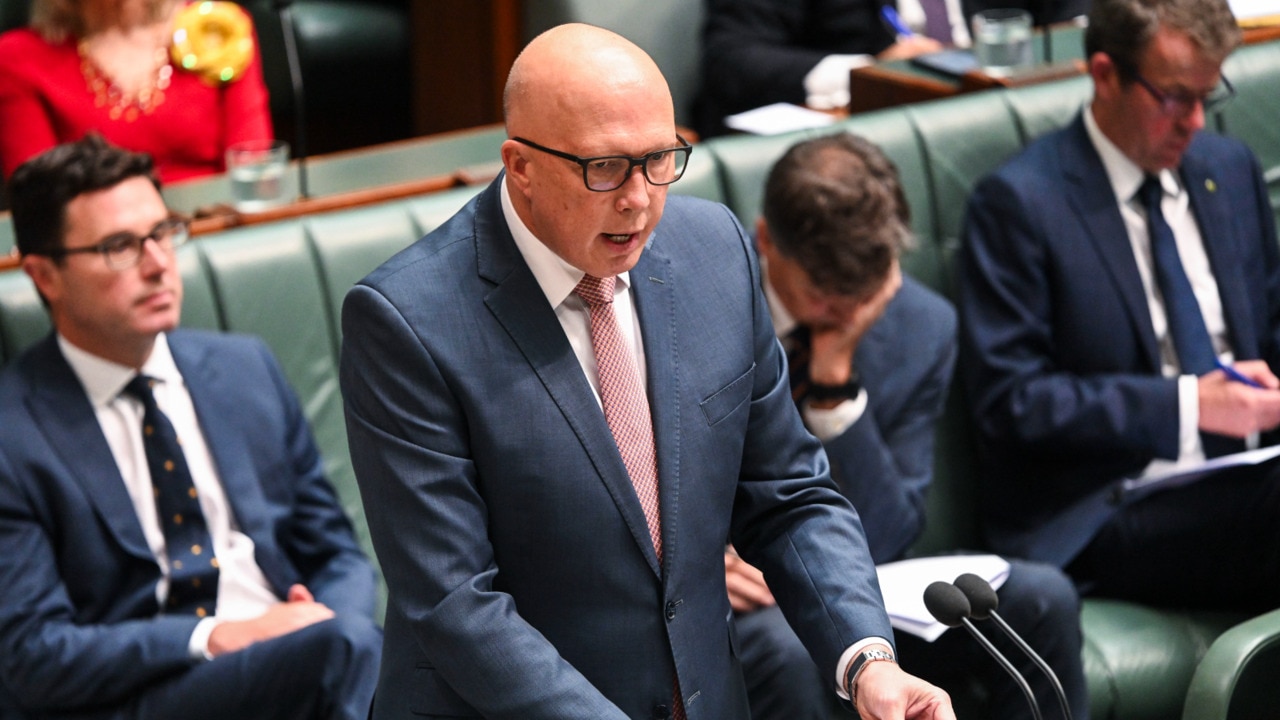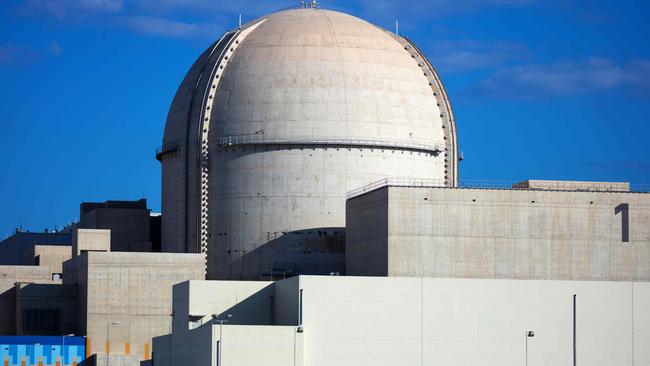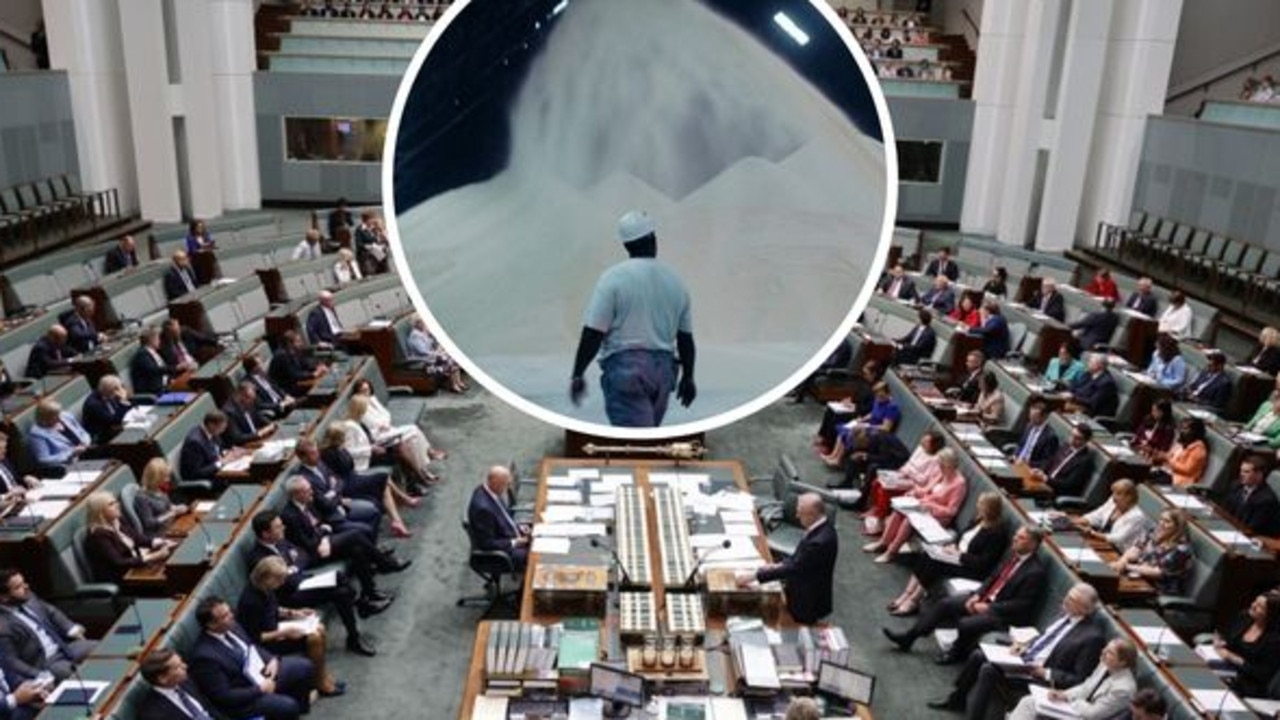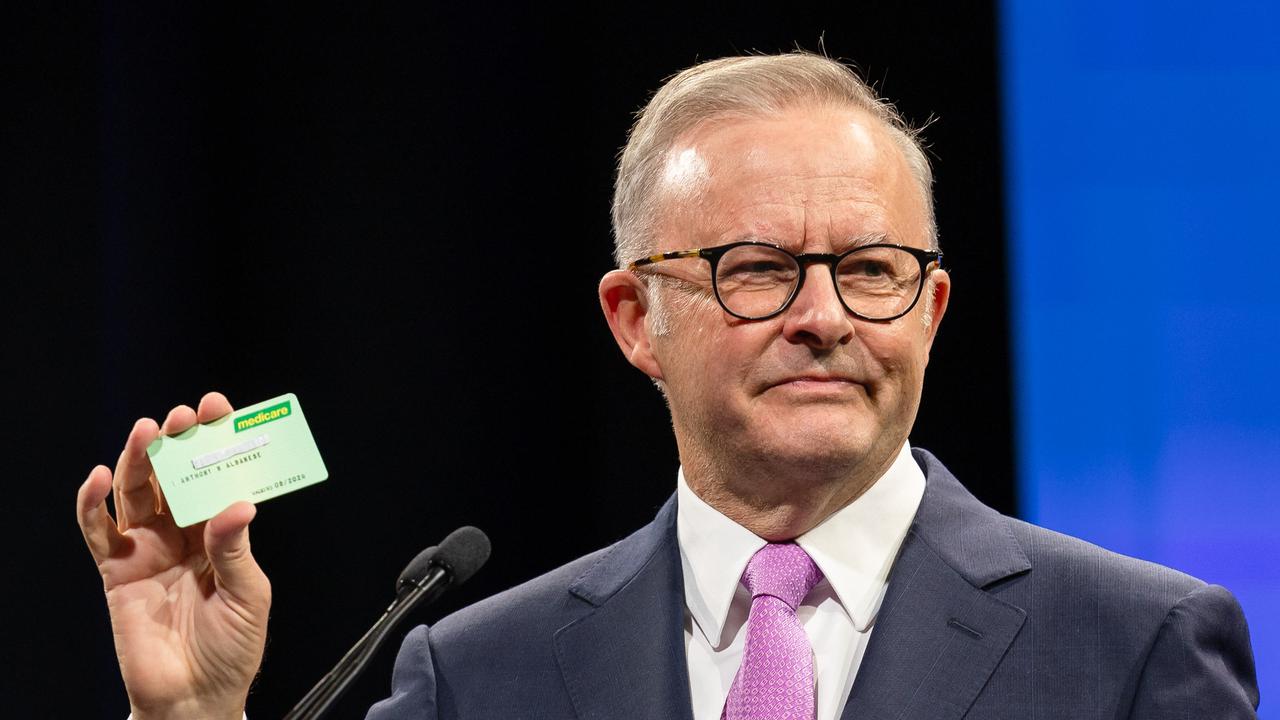Credlin: Dutton v Albo will be battle over nuclear energy
As Peter Dutton is determined to end a nuclear ban the Albanese government is all for, the next election is going to be a battle over nuclear energy, writes Peta Credlin.

Opinion
Don't miss out on the headlines from Opinion. Followed categories will be added to My News.
Clearly, the next election is going to be a battle over nuclear energy. That won’t be all it is, but given that Peter Dutton is determined to end the nuclear ban – that the Albanese government is all for – the nuclear debate will be front and centre.
And about time, too. Australia has had a medical nuclear reactor at Lucas Heights, in Sydney, for more than six decades. Both sides of politics are committed to acquiring nuclear-powered submarines as soon as possible. So, how can it be right to have nuclear power plants operating at sea but totally wrong to have nuclear power plants operating on land, especially when nuclear energy is the only proven way to deliver emissions-free base-load power in a country such as Australia?
Just wait for the green Left to run the mother of all scare campaigns against nuclear power at the next election. It will make the campaign a test of our political maturity as a nation, and also our ability to make rational decisions about contentious issues.
That’s because the Albanese government, as a supporter of AUKUS, can’t be against nuclear power in principle if it also wants to say, at the same time, that it supports the use of nuclear-powered submarines to protect Australia.

Nor can it mount a sensible argument that we can mine uranium here and export to others (we have about a third of the world’s known reserves of uranium) but that we cannot use it at home to give our own people cheap and reliable power.
So what will Labor argue? First, that nuclear power is too expensive; second, that it’s unnecessary; and third, that it’s all too hard?

Let’s take each of these arguments in turn. There’s no doubt that nuclear power is expensive – much more expensive than coal and gas-fired power, and much more expensive than renewables, at least while the wind is blowing and the sun is shining. The difference, though, is that nuclear is zero emissions and, if it really is necessary to achieve net zero, it’s the only credible way to do so while keeping the lights on.
What’s more, turning intermittent renewable power into 24/7 electricity involves:
BATTERIES that are very polluting to produce and not grid scale;
GAS, which the Green Left hates almost as much as coal, even though it’s half the emissions;
“GREEN” hydrogen generated by renewable power, which is totally unproven and uncosted at grid scale, or;
PUMPED hydro, which has so far proven to be every bit as costly and difficult in practice as nuclear.

For instance, let’s compare Snowy 2.0 with the Barakah nuclear plant that’s just become fully operational in Abu Dhabi. For Barakah, contracts were let to a South Korean-led consortium in 2009, construction began in 2011, the first power was generated in 2020, and the 5600- megawatt plant, generating 25 per cent of the oil-rich UAE’s total electricity, is now operating at full capacity after the expenditure of some $35bn.
By contrast, Snowy 2.0, that can generate 2200MW for just a week without sustainment, that was announced in 2017 and supposed to become operational in 2022 for just $2bn, is now officially expected to cost $12bn and to become operational at the end of 2028.
Ted Woodley, a former managing director of EnergyAustralia, says that with all its ancillaries such as extra power lines, the total cost is likely to be $25bn – for less than half the power of Barakah.
The Albanese government has already legislated a 43 per cent emissions reduction by 2030, requiring that 82 per cent of Australia’s energy come from renewable sources by that date. Achieving this, though, requires the installation of 22,000 new solar panels every single day, the erection of 40 large wind turbines every single month, and the construction of at least 10,000km of new transmission lines – and that’s simply not happening.

What is happening is the decline of maintenance and upgrades for the coal-fired power that still provides more than 60 per cent of our electricity, which is why the lights are now at routine risk of going out.
As well as ending the nuclear ban, Dutton needs to keep coal-fired power going until there’s a reliable alternative, rapidly open new gas fields to firm the renewables we already have, and end further subsidies to renewables if the power system is to be more affordable and reliable.
And he needs to persuade people that if nuclear power makes sense for more than 30 countries already, it shouldn’t be beyond us.
Especially since the objections that Labor is raising to civil nuclear power – such as the need for a regulatory regime and a much larger nuclear workforce – apply with almost equal force to the nuclear submarine plan that Labor says it supports.
Last week, Dutton pointed out that electricity in Ontario, Canada, that’s 60 per cent from nuclear power, is just 16c per kilowatt hour compared to 30c here. With cost of living the biggest issue by far, the case for nuclear is strong – and Labor’s hysterical opposition shows it knows Dutton’s on to something.
OUR MIDSUMMER OF MADNESS IN KOWTOWING TO TRANS LOBBY
The UK National Health Service has stopped routinely prescribing puberty-blocking drugs to gender-confused children – but our local politically correct health services are still insisting that boys-who-think-they’re-girls and girls-who-think-they’re-boys should have their feelings “affirmed” and be drugged-up accordingly.
Yet, in what other branch of medicine would doctors accept a patient’s self-diagnosis, let alone the self-diagnosis of an under-age child?
Last week, the NHS released a statement that “there is not enough evidence to support the safety or clinical effectiveness of (puberty blockers) to make the treatment routinely available at this time” – so, henceforth, these drugs will only be available as part of clinical trials.
This follows the closure of the notorious Tavistock Clinic, in London, after a report finding that an “ideologically driven approach” had rushed children on to these drugs. As well, countries such as The Netherlands and Norway, previously practising “gender-affirming care”, are now rethinking their approach.
But nothing, it seems, will shake local health authorities’ subservience to the trans lobby mindset that gender is a social construct that even children should have the right to change at will.
Melbourne’s Royal Children’s Hospital refused to respond to the NHS decision, while the Victorian Premier’s spokesman said that the government backed the RCH’s model of care “absolutely”.
Queensland, too, insisted that nothing needed to change, with the Health Minister declaring that “all trans young people deserve access to high-quality and timely healthcare”.
We don’t let under-age children drink alcohol or buy cigarettes but, somehow, we still think that they can’t be questioned if they decide that they’re trapped in the “wrong” body.
This is the very midsummer of madness, yet despite the growing global move against gender affirmation therapy, in Australia we can’t even have an inquiry. If ideologues won’t subject their position to a transparent expert review, that says everything as to why they should not be trusted.
Watch Peta on Credlin on Sky News, weeknights at 6pm





